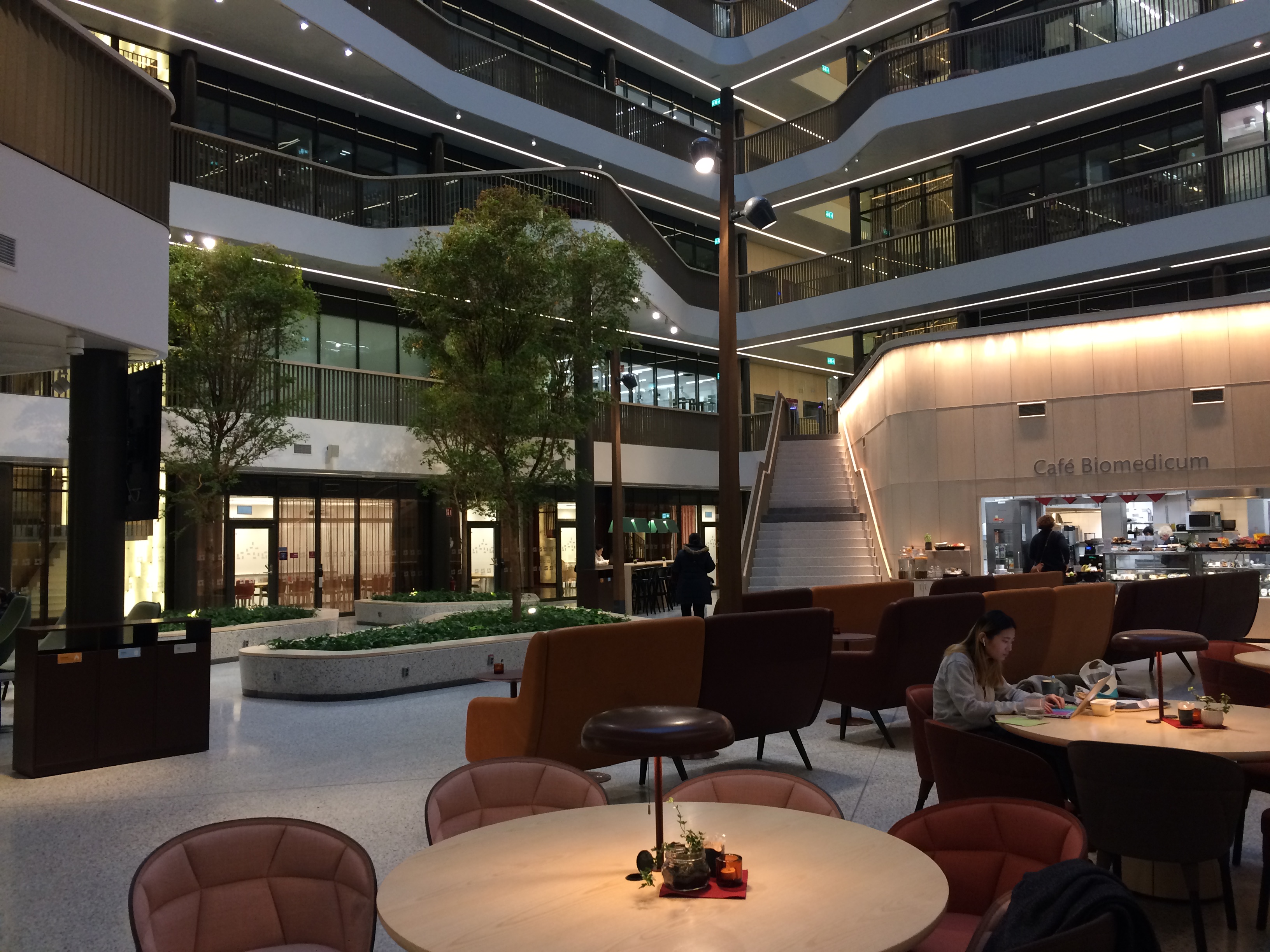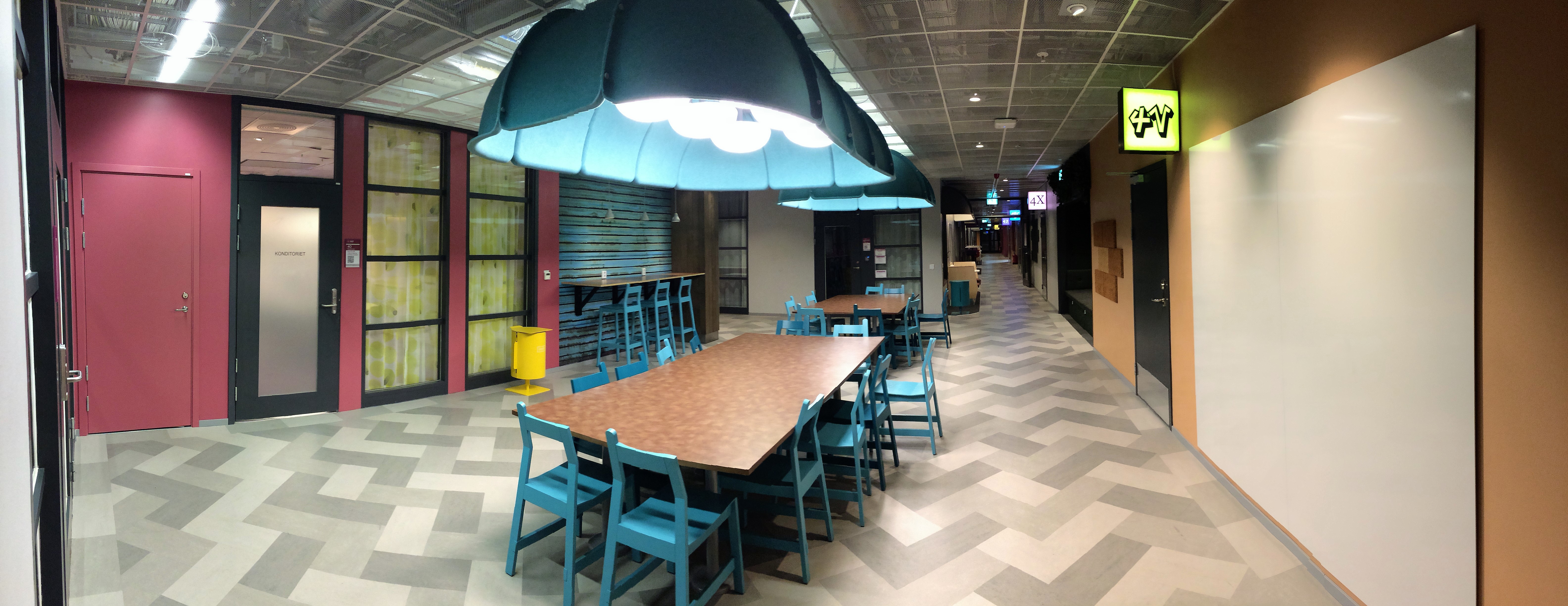
MSc Biomedicine semester two – course review part 1/3
Hej hej!
It’s time for the first-course review of semester 2. We have several modules running after each other so you get to focus on one field at a time. I decided to divide the course reviews into three blocks to make things easier (for you the reader and me?). I will discuss the first two courses, Laboratory Animal Science (LAS) and Applied Communication in Biomedicine II (ACB II). The former took place at campus Solna while the latter at campus Flemingsberg. These courses are completely different, and that’s one of the perks of studying biomedicine at KI. Since our master’s programme is an interdisciplinary program, you will touch upon different topics that will have a strong impact on your future career – whether it’s within or outside academia.
Laboratory Animal Science
This course is performed together with the toxicology master’s students. Before the start of the course, we were emailed to fill a form about our previous experiences with animals and field of interest for the project work (i.e. rare diseases, neurobiology, oncology, cardiovascular, or metabolic). Some of us had no/little experience while some were really experienced. At the start of the module, we got placed in groups of 4-5 people with mixed experiences. The learning outcomes of the course were “as set out in the EU Education and Training Framework for people who undertake or design experimental procedures involving rodents and lagomorphs, specifically EU modules 1 to 11.” By now, everyone knows how to morally handle rodents according to good ethical practice, as well as carry out minor procedures.

Biomedicum (Solna Campus) – Photo Credits Ines Rivero Garcia
The course consisted of practical hands-on sessions, project work, lectures, and online tests. Everything was mandatory. Experienced professionals taught us how to handle rodents and they were very sympathetic. Designing a research protocol (project work) for the animal experiment was certainly challenging. I personally think that we needed more feedback and guidance from the lecturer on how to execute the animal experiment project. Though we learned a lot from the online courses, I felt that they were time-consuming and confusing. Anyhow, I managed to finish them on time before the exam. Although we were told to follow the learning outcomes for the exam, most of us were still unsure about how to prepare for it. The exam went well, but I also want to mention that the way the multiple choice questions were formulated was rather confusing.
Applied Communication in Biomedicine II
These communication courses are surprisingly becoming my favourite. We had lectures on how to advance our academic writing by a writing instructor that was a bit repetitive but still useful to know. There was also a lecture on the importance of critical reading in science which I thoroughly enjoyed. It is quite important to question the scientific articles we read nowadays and understand the relevance and significance of the authors’ work. There was a CV and cover letter workshop, specifically aimed for academia. Moreover, this module had two main tasks – oral assignment and written assignment. The tasks were quite challenging since you learn about fields outside your comfort zone (unless you are lucky and get an article about your field of interest?). You need to keep in mind that they focus more on your overall understanding of the article and how you communicate its results to experts. You also get to peer-review one of your classmates for these assignments.

Flemingsberg campus – Photo Credits Ines Rivero Garcia
During the journal clubs, we touched upon the aim of the study and the relevant methodologies used. We further discussed the results/conclusions drawn by the authors, as well as the significance of the study. It will be difficult in the beginning to understand these advanced articles and pick which results to interpret for the assignments. At the end of the day, you’re receiving constructive criticism on your work from academic experts which will be beneficial for your future career. There were also critical discussions among the students and the teachers about how scientists make judgments on the work of others through analysing the relevance of the literature, as well as Journal Impact Factor (JIF) I personally enjoyed this course, and I believe that my writing and presentation skills have improved a lot compared to the previous ACB1 course. I am looking forward to the other ACB courses in semester 3.
Got any questions?
Contact me via my email. ?
e-mail: sara.abu.ajamieh@stud.ki.se
LinkedIn: Sara Abu Ajamieh

0 comments